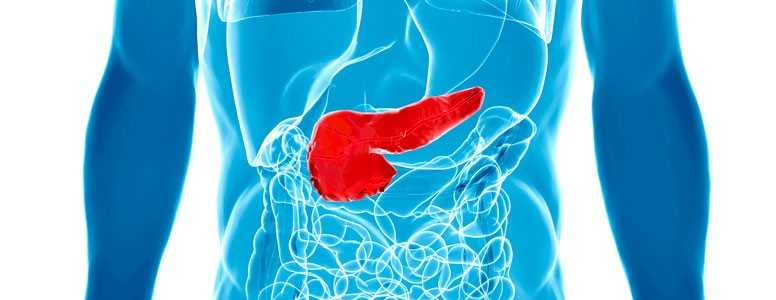Fat stored around the pancreas is far more important in determining the development of type 2 diabetes than overall body fat, according to new research.
The study, conducted at Newcastle University, indicates that less than half a teaspoon could be enough to cause – or reverse – the development of type 2 diabetes.
“We have shown that there is excess fat in the pancreas of people with type 2 diabetes, which is not present in people without diabetes,” said Roy Taylor, professor of medicine and metabolism at Newcastle University. “If this special pool of fat is removed then the pancreas can become able to make insulin normally, and sugar control returns to normal.
“I’m very excited about the findings because up to this point the failure of the cells in the pancreas to produce insulin has been mysterious. By showing we can detect a pool of fat in the pancreas, which when drained away allows the pancreas to function normally again, suddenly means we can see diabetes in startlingly simple terms,” he told the Independent.
Professor Taylor has previously conducted research into reversal of type 2 diabetes. He led the famous ‘Newcastle diet’ study, which showed that type 2 diabetes can be reversed by following a very low-calorie diet (around 600 calories per day). The diet is now popular among people newly diagnosed with type 2 diabetes, but it is a very extreme diet. It should not be followed over a long period of time, but rather for a few weeks.
The trial was conducted using data from 27 participants. 18 of them had type 2 diabetes, and they were compared to nine people who were overweight but did not have type 2 diabetes. All of the participants had gastric bypass treatment for obesity, and then the diabetes patients were taken off their medication.
Both groups lost around 13 per cent of their original body mass. Using MRI scans, the researchers then examined whereabouts the fat had been lost. In the diabetic group, a lot of fat was lost from the pancreas, but this was not mirrored in the non-diabetic group.
Professor Taylor argues that losing 0.6 grams of fat from the pancreas can make a huge difference in people with type 2 diabetes. After losing this tiny amount of pancreatic fat, the diabetic group of participants were able to reverse their type 2 diabetes – that means they no longer needed medication and could control blood glucose levels using their ow, naturally-produced insulin.
“This comes across as a simple explanation for type 2 diabetes and for patients it will be a strong motivating factor in losing weight,” said Taylor. “But it also presents a very clear target for future research. If you can block the uptake of fat by the pancreas, you can reverse the disease.
“At present the only way to get fat out of the pancreas is to remove a very large amount from the whole body. But now it should be possible to target drugs to block fat uptake into the pancreas.”
Professor Taylor considers this a significant step towards a cure for type 2 diabetes, because it allows researchers to “understand what is causing the disease.”
Others have been critical of the findings, which have not yet been published in a peer-reviewed journal. Professor Stephen O’Rahilly of Cambridge University said:
“The implication that ‘disappearance of fat from the pancreas’ on an MRI scan has any real meaning for diabetes is largely unsubstantiated.
“Fat is lost not only from fat tissue but from all the other places, like liver and muscle and pancreas where excess fat goes in some people who are obese. Also unsurprisingly, their diabetes goes away.
“Losing weight in the short to medium term is not a difficult thing. There are thousands of people who have done that and hundreds of ways of doing it. The real challenge is maintaining lowered weight in the long term.
“This is not addressed in this study. It is likely that the weight will start to return in most individuals and, with that, the diabetes will follow.”
The findings were presented at the World Diabetes Conference in Vancouver, Canada.
What's new on the forum? ⭐️
Get our free newsletters
Stay up to date with the latest news, research and breakthroughs.




